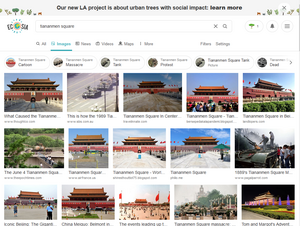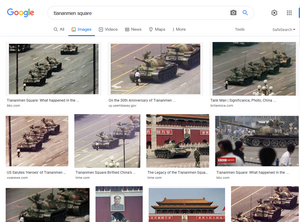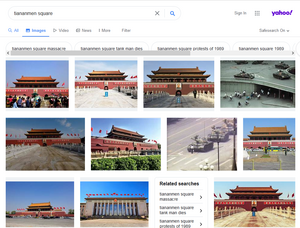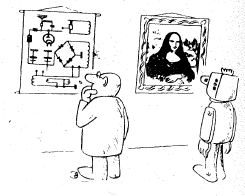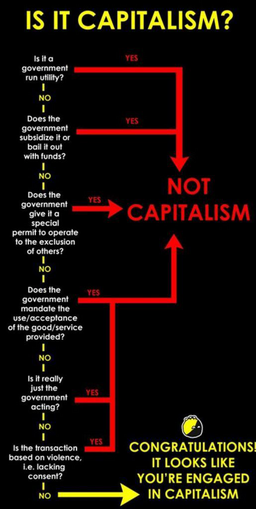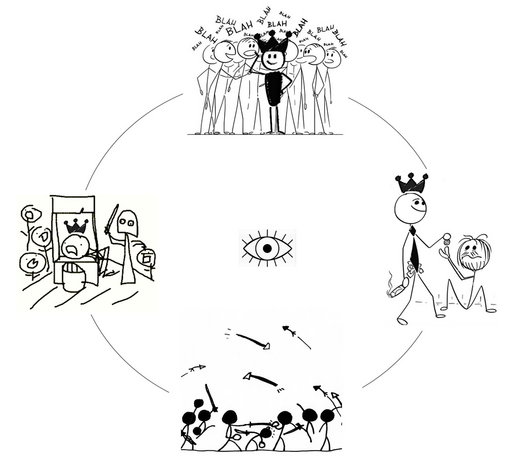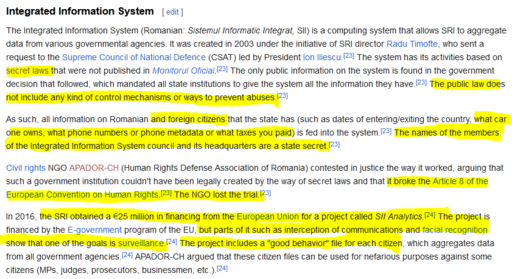Table of Contents
Margaret Thatcher's Response to Labour
- Margaret Thatcher's counter-argument on the increasing wage cap is that while the income gap between the richest and the poorest might have increased, the overall income of the poorest has in fact increased.
- She continues to argue that socialism in its zeal to make everyone equal has the effect of dragging everyone down, both the poor and the rich alike. In fact, she claims that the opposing party would rather have the rich being poorer even if the poorest would be even poorer perhaps highlighting that class struggle is built on an irrational thought of a vendetta where a class would be penalized regardless whether the punishment would be to the detriment of the other class.
- Thatcher goes on to demonstrate with her fingers and claims that socialism would rather narrow the gap between the rich and the poor even if it would mean that the level at which both the rich and poor are to be found would sink compared to the current system,
- The former can be traced back to Rawls where Rawls stipulates a notion of equality where no difference in wealth is to be tolerated unless that difference works to the benefit of the worst off group in society. Therefrom it trivially follows that by making a society overall poorer (ie: the rich and the middle class), one should do so since it would favor the worst off group in society; unless, via the Rawls principle of priority, the actions performed would abridge political liberties (ie: abolishing free speech if it would benefit the worst off class).
- Thatcher expresses her view against central banks claiming that central banks take away all political power from the regions that the bank has jurisdiction in. In particular, she talks about the European central bank and against the single currency policy claiming that the European Community is more about a "federal Europe by the back door".
- Known for the quote, "socialism only works until you run out of other people's money".
The Tragedy of The Commons
Explained allegorically by William Forster Lloyd in an essay using grazing pastures as the common and unregulated good and cow herders fighting over the common good and for each additional animal that a cow herder would add to the pasture it might end up in overgrazing such that the other herders would share the resulting damage. If all cattle herders would take the decision to be greedy and add additional animals, then the common good would be depleted to the determent of all.
Garrett Hardin, "freedom in the commons brings ruin for all".
Political Psychiatry
Broadly as a hallmark of communist countries, yet pertaining to post-communist countries in the Balkans, countries such as France or even the US, the concept of political psychiatry can be defined as the abuse of psychiatry as a tool of repression of individuals used by the state in circumstances where people, that must be silenced or have their freedoms restricted, have not broken the law and cannot be put through court or trialed.
Sometimes, by association, the state employs harassment that would drive a person to be distressed at which point psychiatry can be leveraged on a broad spectrum to pin a psychological condition on the person in order to facilitate the suppression of their freedoms and specifically to be deemed unfit for trial. Contrary to Foucault's criticism of the psychiatric institutions, the abuse is in a political context seen as being deliberate and political rather than resulting from the implicit application of a scientific or medical perspective.
In brief, political psychiatry represents a state mechanism through which people can be steamrolled from freedom to jail whilst relieving the state from the burden of proof.
The Bodyguard Phenomenon
Pertaining mainly to Russia, the Balkans but also in Western countries such as the US yet in a more sophisticated form, the bodyguard phenomenon can be defined as the replacement of the police by other commercial law and order solutions such as the hiring of bodyguards. More predominantly pertaining the Eastern countries, commercial law and order solutions such as bodyguards can sometimes be omnipresent on the street and meant to protect businesses and irrespective of the state-endorsed police.
The Eastern rationale behind the phenomenon can range from generalized corruption or incompetence of the police that cannot guarantee safety of property in very weak states. Conversely, the Western rationale consists in retired personnel from the military forces that find no other job after being discharged from service and hence end up in commercial law enforcement.
A connection could be drawn to Nozick's watchman state where the state relinquishes its monopoly on violence and delegates authority to the private sector yet the bodyguard phenomenon seems more linked to abuse of power or an overreach of authority where commercial law and order solutions can be held less accountable than the police and do not necessarily have to follow legal procedure.
The Prison Industry
Specifically pertaining to the United States, the term "prison industry" refers to the delegation of prisons from the state to the private sector along with state-provided tax cuts, exemptions and other state subventions that, contrary to the defined purpose of a re-educational institution, result in the patrons of the private prisons to be motivated more by the retention of prisoners than their re-education.
Mentions
- Chris Hedges, journalist and part-time educator at state prisons, highlights the problems revolving around commercial prisons.
- 13th by Ava DuVernay, analyses state prisons from a racial perspective but sustains the reasoning that for-profit prisons lead to higher incarceration and retention rates.
The Great Resignation (The Big Quit) and The Call to Even More Work
"The Great Resignation" is recycling the slogan of the past economic crisis of 2007-2008 and is attributed to Anthony Klotz that predicted a mass quitting during the pandemic early in May 2021. The general consensus is that due to governmental restrictions during the pandemic, wage stagnation and rising cost of living, people have opted to resign their jobs in order to pursue other endeavors.
The former is confirmed mainly by the statistics governing resignations in the United States that shows an abrupt decrease in resignations at the peak of the pandemic followed by a massive increase of resignations after the peak of the pandemic in the first economic quarter of 2020. Anthony Klotz, being a professor of management, additionally argues that more and more people have opted to work remotely during and after the pandemic since working remotely, whilst leveraging the advances in technology, tends to work for the benefit of the employer, for instance, by reducing maintenance costs as well as providing an employee with a more flexible lifestyle.
The Social Contract
Constructed historically by Locke, Hobbes and Rousseau, the generalizing idea is that in order to form a state, a community of individuals relinquish some authority and delegate powers to the state in exchange for certain tasks that the state would accomplish on their behalf. Some philosophers, such as Locke and Hobbes mainly discuss authority, and absolute authority once the social contract has been established, Rousseau touches on the subject of authority in relation to slavery but tends to talk more about empowering the individual.
Broadly seen, in modern times, the social contract can be seen as a mutual agreement between an individual and the state that describes their relationship in all public matters. In modern times, where the concept of authority appears more refined and provided that a state benefits from an exchange currency, the payment of taxes from the individual to the state can be seen as part of the social contract where the state is supposed to collect the taxes and use them for public benefit.
Socialism for The Rich and Capitalism for The Poor
The phrase is originally credited to Michael Harrington and it is used to describe a stage in advanced capitalist countries where allegedly the tendency is to facilitate wealth for the rich rather than the poor. Michael Harrington's thesis is based on an analysis of poverty in his book "The Other America" where he takes the unique approach to disconsider the official definition of poverty but rather to account instead for social factors, race and overall quality of life. For instance, Harrington accounts for "the working poor" as an effigy of people being employed but struggling to break even whilst implicitly also accounting for the lack of upward mobility. Similarly, Harrington contests the official US rate of unemployment by arguing that the allowed percentage does not account for temporary workers, disadvantaged workers, etc.
The phrase is also known as:
- corporate welfare,
- privatize profits and socialize losses,
- socialism for the rich and free enterprise for the poor (Andrew Young, used by Martin Luther King Jr.),
- Keynsianism for the rich and monetarism for the poor (Ha-Joon Chang),
Republic vs. Democracy
- a republic is a system of governance where the people rule via the means of elected officials and in the absence of a monarch,
- a democracy, in its Greek definition is a system of governance where the people rule directly
Both systems do not undermine the will of the people, nor are they in contradiction but the main difference is that in a republic the people govern through elect officials rather than directly which could lead to the belief that a republic denotes an organizational decree whereas democracy is more broad and idealistic.
The Police as an Instrument of Class Segregation
Robert Nozick as one of the proponents of the minimal state frequently cites the nightwatchmen state where the only legal body that came close to a police force consisted in a loose organization of local citizenry that were collectively delegated to ensure peace within a community (the tasks delegated to the watchmen were minimalistic such as bringing the perpetrators of crime before the Court). Nevertheless a police force as in its ulterior and more modern embodiment as described by Michael Foucault as an institution of control where the police force behaved more proactively than reactively can more or less trace its roots in the foundations of social order due to its historical evolution. Historically, whether that meant securing property, the round up of slaves in the US, the quelling of unions (or the direct involvement in the organization of labor), the peacekeeping between nationalistic or race-based "silo" communities the modern police force ended up being less influenced by a monarch ("men of the king") and more of a force being controlled by the layers of society that had the sufficient political leverage to sway the use of force within the state.
An Evaluation of Russian Politics - Orthodoxy, Autocracy and Narodnost (The People)
by Martti J. Kari.
Guided or Managed Democracy
The concept was first formulated by Walter Lipmann in "Public Opinion" 1922 and by Edward Bernays in his work "Crystalizing Public Opinion". Sheldon Wolin expanded on the notion of guided democracy by introducing the concept of inverted totalitarianism.
A managed democracy is a formally-democratic government that functions as a de-facto autocracy. The government controls elections and the state apparatus such that citizens are able to formally exercise their democratic rights but without being able to change the inner workings of the state. On the outside, the state appears to be a democracy or at least it is self-defined as a democracy yet due to the accumulation of power or wealth that is hoarded at the upper echelons of society, the power of the individual and the populace at large is diminished to the point of being irrelevant or at least insufficient for political change to take place.
Political Polarization
Even though most often found in the context of US politics due to the two party system, political polarization describes the tendency of groups to isolate themselves from other groups and to concentrate power within the group rather than cooperating and relying on other groups. Contrarily to "nuclearization", polarization would imply that the resulting splinter-groups are opposed Perhaps the idea of political polarization can be derived from more general group dynamics such as Pierre Bourdieu's field theory that describes the interaction between individuals and the group as well as between groups of individuals by following Antonio Gramsci's idea of cultural hegemony.
Contrary to the theory of polarization, Sheldon Wolin would argue that the two-party system is expressed only nominatively and that in practical reality both parties tend to follow a pattern of lowest-common-denominator conservative thought. Wolin argues, on the basis that the coalescing of state powers leads to fascism, that the meld between the opposition and the currently governing party leads to the lack of political alternatives, especially concerning true voter freedoms that are able to bring about real political change.
Polarization does not necessarily entail nor imply a two-party system even though "polarization" is seen physically as an expression of opposites. Following Pierre Bourdieu's thesis on field theory, it is possible to generalize polarization from a  -party system to an
-party system to an  -party system where very much the same issues would prevail yet in a more complex fashion.
-party system where very much the same issues would prevail yet in a more complex fashion.
Political Allegiance by Search Engine
One Internet myth revolves around determining the extent of freedom of information of a given Internet search engine by going to the images section and looking up the phrase tiananmen square. When the image results appear, there are two possible outcomes (or a mix of both):
- images of the Tiananmen square massacre dominate the search results,
- iff. images of the Tiananmen square massacre are dominant then the search engine is said to be free or impartial,
- photos of the Tiananmen square itself in China dominate the search results,
- iff. photos of the square are dominant the the search engine is said to be biased towards Chinese politics
The validity of the thesis hinges primarily on the fact that the "man with shopping bags blocking the tank" (tank man) is an image that has become over the years a well-established trope symbolizing the resistance of the individual against the state. Therefrom, it is assumed that any impartial search engine would provide the image of the man blocking the path of the tanks as one of the first images due to its overwhelming popularity contrasted with the popularity of just random photos of the Tiananmen square itself. Furthermore, up to this date, "Tank Man" remains censored in China which tends to give credence to the search engine bias thesis.
Note that the thesis is different from the formal, as formal as it may be, narrative that suggests that the search terms would have originally been "tank man" instead of "tiananmen square". The drama concerning the "tank man" search terms has already been thoroughly debated, a shameless citation of Wikipedia permitting:
"On June 4, 2021, the 32nd anniversary of the 1989 Tiananmen Square massacre, searches for the Tank Man image and videos were censored by Microsoft's Bing search engine worldwide. Hours after Microsoft acknowledged the issue, the search returned only pictures of tanks elsewhere in the world. Search engines that license results from Microsoft such as DuckDuckGo and Yahoo faced similar issues. Microsoft said the issue was "due to an accidental human error". The director of Human Rights Watch, Kenneth Roth, said he found the idea it was an inadvertent error "hard to believe". David Greene, Civil Liberties Director at Electronic Frontier Foundation, said that content moderation was impossible to do perfectly and "egregious mistakes are made all the time", but he further elaborated that "At worst, this was purposeful suppression at the request of a powerful state."
Whilst it seems that the search term "tank man" has indeed been adressed by Microsoft, the search term "tiananmen square" still yields random photos of the Tiananmen square and not the overly popular tank man amongst the first search results.
Gallery (13th of April 2022)
Others
Same results by using the search term "Haiti" for different search engines.
Politics of Continuity
Ultimately a Hegelian dialectic of thesis, anti-thesis and synthesis, politics of continuity represent the movement of society as viewed from the perspective of various crises as the milestones of civic evolution. The concept is illustrated by Milton Friedman in the context of economics stating that "Only a crisis - actual or perceived - produces real change. When that crisis occurs, the actions that are taken depend on the ideas that are lying around.". The same case, is made by David Harvey stating that capitalism never solves its own problems but rather moves the problems around geographically. One of the fears of skeptics in modern political thought, for instance, as Hegel being paraphrased by David Icke "problem, reaction, solution" is that the entire Hegelian cycle of thesis, anti-thesis and synthesis might not be organic, as a natural evolution of thought, but rather a pre-synthesised or pre-conspired arrangement, that might not be representative of society as a whole, but rather leveraged as a device to push policy, that either would benefit only the very few, or a policy that has already stipulated in the idealistic sense.
In many ways, the politics of continuity pertaining to crises, particularly focusing public attention on disasters (ie: Naomi Klein's "disaster capitalism"), is contemptible in the sense that it precludes noteworthy major events (ie: scientific breakthroughs, noteworthy societal events) by diverting attention towards subjects that carry "shock value" such that human history and public recollection becomes a series or sequence of never-ending calamities strung together.
The Right to Fail and The Right to Death
In the Declaration of Independence in the United States, it is stated that "We hold these truths to be self-evident, that all men are created equal, that they are endowed by their Creator with certain unalienable Rights, that among these are Life, Liberty and the pursuit of Happiness." essentially stating the Rousseuian basis upon which human rights are built and in particular the observation that the right to "life", "liberty" and "the pursuit of Happiness" are unalienable human rights. Aside from issues arising from the statement that "the pursuit of Happiness" is an unalienable human right, leading one to wonder whether that is a negative or positive right, a different question that arises is whether the converse holds equally true.
Namely, is "death", "captivity" and "the pursuit of Unhappiness" also unalienable and irrevocably negative rights? Although superficially contrarian at first, the "right to death" is subject of pertinent debate with regards to medical conditions bringing forth the notion of "assisted suicide". Following the example in the same jurisdiction, the United States does not approve, at the federal level, of "the right to death" such that "assisted suicide" is not legal in the United States (and only partially legal in a handful of its member states). As it follows, it seems that "death", "captivity" and "the pursuit of Unhappiness" are not universal unalienable human rights. In fact, the Universal Declaration of Human Rights, as stipulated by the United Nation, does not offer a follow-up clause that the converse of, for instance, "life" as would be "death", as a human right. As it follows, it can be said that individuals have the right to their own life but yet do not hold the rights to their own death, where, for all practical scenarios, an individual's right to death is held or withheld by the state (as a monopoly on violence, now a monopoly on death). Nevertheless, John Stuart Mill makes the claim in "On Liberty" that "[state intervention for] His own good, either physical or moral, is not a sufficient warrant." meaning that a libertarian society should not monopolize the right to death via the right to self-harm.
In a narrower sense, and culturally speaking, the "right to fail" as coined by Zinsser comes as a reply to the societal urge for individuals to succeed at all costs. The urge to succeed, as a desire for elitism, could be seen as the transformation of "the right to Happiness" from a negative into a positive right that is then imposed as an obligation on the individual - in other words, as it follows from the theory, as well as from all cultural or practical imperatives, one has the obligation to be happy. The obligation to be happy, or, rephrased in Zinsser's terms, the obligation to be "successful" in particular with relation to the welfare state, makes one wonder whether individuals have the right to their own existence.
Recognizing the inability of modern societies to conceptualize "failure", or willing to spin failure as the road to success, and borrowing the concept of "tyranny of the majority" from Alexis de Tocquerville it is often the case that societies become overzealous and tend to pro-actively impose success (or, following the theory, impose happiness) without even wanting to recognize the concept of unhappiness, strife, misery or failure as being a self-standing concept, or counter-intuitively to them, a set of unique albeit particular human desires. Indeed, de Tocquerville argues that society tends to blanket cover all its extremities and favor some normative mediocrity yet theory would state that if and only if an individual holds the right to their own existence then both the "right to life" as well as "the right to death" must be satisfied.
The Right to Free Speech vs The Right to Be Heard
As per the 1st Amendment, the right to free speech is defined as: "Congress shall make no law respecting an establishment of religion, or prohibiting the free exercise thereof; or abridging the freedom of speech, or of the press; or the right of the people peaceably to assemble, and to petition the Government for a redress of grievances."
In other words, the 1st Amendment makes the "freedom of speech" a negative right. "The right to be heard" (that would be a positive right) is still not guaranteed in any way, such that neither congress, nor third-parties, nor individuals, are dutifully bound to facilitate or, in any way, accommodate for "free speech".
The Malthusian Model
Published by Thomas Robert Malthus in 1798, the theory can be summarized as the following: initial growth in overall (sustainable) GDP leads to a growth in the overall population, however a growth in population leads to a decrease in overall GDP.
As an allegory, the Malthusian view can be portrayed as a patch of land that is cultivated by farmers which yields a certain amount of GDP. As the land increases the GDP, the farmers tend to increase in population due to the overall increase in quality of life. However, since the quality of life increases, this means larger lifespans for all farmers and less resources for all.
The following steps would occur in succession:
- farmers have good harvests,
- income raises per farmer,
- population rises,
- there is less land available per farmer,
- average output falls per farmer,
- income of farmers falls
The Malthusian model can be explained by the economic principle of diminishing returns, where each increase along the production line yields smaller returns. As time increases, the model ends up in a stagnant system where the wages and population remain constant relative to each other with no other way to escape.
The latter stagnation is called a "Malthusian trap" and thanks to records held by the British Empire, before the industrial revolution, the population of Europe found itself in a Malthusian trap. As it so happened at the time, the black death in Europe caused a massive decrease in population which resulted in a boon after the black death due to the decreased population. Unfortunately, up to the industrial revolution, the same Malthusian effect could be observed where the wages stagnated relative to the growth in population.
Historians argued that two factors lead to the great escape for Europe out of the Malthusian trap, namely technological development and later, fueled by the massive increase of productivity per laborer, political rights that made wages rise entirely out of the Malthusian trap.
Modern accounting do not reveal a correlation with the Malthusian model due to various socio-economic and political aspects of population dynamics. For instance, it has been observed that in modern times urbanization, and implicitly wealth accumulation, leads to a counter-Malthusian effect where urban population tends to have less children per capita such that unbounded population growth cannot be projected.
The Jaffe Memo
Perhaps one shining example of the Malthusian fallacy is the infamous Jaffe memorandum, written by Frederick S. Jaffe in 1973, which was requested by Bernard Berelson, head of the Population Council of Planned Parenthood in the USA.
In popular culture, the Jaffe memo has been seen as inflammatory due to the memorandum suggesting drastic measures for population control (ie: "encourage increased homosexuality", "fertility control agents in water supply", suggesting "chronic depression" as a population control measure, "compulsory sterilization", "discouragement of private home ownership", etc.). The Jaffe memo has thusly become a point of controversy with Frederick Jaffe having to ulteriorly make followup statements saying that the memorandum contains only voluntary suggestions and that he never implied that the measures described in the document be implemented through coercive measures. For instance, in addressing the senator Alan Cranston in 1973, Jaffe mentions: "the memorandum makes clear that neither I nor the Planned Parenthood Federation of America advocates any of the specific proposals embodied in the table which go beyond voluntary actions of individual couples to space and limit births."
Regardless of intent, Jaffe makes an iconic Malthusian argument in his memorandum stating that unregulated parenthood will lead to an unsustainable population growth. In fact, the very first point in the memorandum is almost a verbatim transliteration of the Malthusian principle, citing from the Jaffe memorandum: "[…] continued U.S. population growth will inevitably cause a deterioration in the quality of life of this and future generations […]".
Interestingly enough, in chapter II of the Jaffe memorandum, Jaffe does mention Thomas Robert Malthus, citing: "[… on population policy and assumptions …] Some of these assumptions go back in the literature for decades and centuries (e.g., Malthus' "population bounty") but have never been subjected to empirical verification. Instead, they have been accepted as conventional wisdom and in turn, tend to impede and distort clarification for the issues involved in assessing alternative policy proposals."
One could assume that Frederick Jaffe's statement is a false representation of Malthus' work, namely, The Malthusian principle is always explained based on the records of the British empire (in terms of wages, population size and productivity) as well as the dynamics that occurred after the industrial revolution. In fact, the Malthusian trap is observable based on records both before and after the black death (that wiped out one third of the population in Europe), such even if the black death were to have been man-made, it did not offer a solution to escape the Malthusian trap.
The Problem of Moral Models
The trolley problem seems to be choice between life and death with no other option - yet, on the higher order, if one believes in the existence of non-determinism, then obviously there is always some other option (surely, one could argue that it might have detrimental outcomes and in various proportions with various applications and for various purposes, etc.).
One example, is the tersely studied "Prisoner Dilemma", initially formulated in 1993 by William Poundstone as:
"Two members of a criminal gang, A and B, are arrested and imprisoned. Each prisoner is in solitary confinement with no means of communication with their partner. The principal charge would lead to a sentence of ten years in prison; however, the police do not have the evidence for a conviction. They plan to sentence both to two years in prison on a lesser charge but offer each prisoner a Faustian bargain: If one of them confesses to the crime of the principal charge, betraying the other, they will be pardoned and free to leave while the other must serve the entirety of the sentence instead of just two years for the lesser charge."
and the typical analysis of outcomes is the following:
- If A and B both remain silent, they will each serve the lesser charge of 2 years in prison.
- If A betrays B but B remains silent, A will be set free while B serves 10 years in prison.
- If A remains silent but B betrays A, A will serve 10 years in prison and B will be set free.
- If A and B both betray the other, they share the sentence and serve 5 years.
Whilst all of the above is true, the context used is very reductionist and, just as a single example, it assumes that the person arresting the members of the gang is a legitimate agent.
Even in the original formulation, it is unclear why the person imprisoning both the gang members would not just imprison them forever irrespective on the relation between A and B and then perhaps claim credit for both of them whilst betraying both of them.
The problem is that when moral models are applied to real situations, it sometimes turns out that the reasoning cannot be applied, or rather, the application does not match contexts that are not as reduced as the context that the model has been created in. In some ways, moral frameworks are just as susceptible to context, just like simplistic models in economic theory that cannot be applied to all cases.
Oil-Backed Philanthropy

Following the definition of the world "philanthropy" such as "the desire to promote the welfare of others, expressed especially by the generous donation of money to good causes", the oil-backed philanthropy phrase highlights the means through which the goal of the definition of the word "philanthropy" is obtained.
"Oil-backed philanthropy" expresses that the more means that you dispose of, the easier, more convenient and even beneficial it would be to become philanthropist. Furthermore, the phrase would sound critical, given that it would imply that the converse would additionally hold true, such that in the absence of lavish means, it might be difficult to become a "philanthropist", or, at worse, to slink into "misandry" as the symmetric opposite.
Trickle-Down Economics (or The Horse and Sparrow Theory)
Counter-intuitively trickle-down economics is not placed within the economics section due to being a matter of policy rather than a standard of economics and economists argue that the "trickle down economics" term has never really been coined by an economist in the first place.
Criticism
Trickle-down economics is frequently represented by pouring wine into a pyramid of glasses at the top and then noticing that the wine tends to spill to the lower levels of the pyramid. Of course, this a fallacy right from the physical concept that the metaphor hinges upon, namely that glasses have finite capacity, whereas wealth has no determined finite capacity such that pouring wine at the top does not necessarily imply that the glass will spill any wine towards the lower levels. A similar older metaphor is the "horse and sparrow" theory where it is said that if the horse is fed enough oats, some of the oats will spill on the road for the sparrows to collect. However, even the "horse and sparrow" metaphor hinges on the biological constant that the horse will eventually end up satiated, which, does not apply to wealth at all.
A real scenario that has been typical of many East European countries, that is very illustrative of the trickle-down economics, incidentally due to the "reset" via the revolutions following the dismemberment of the Soviet Union, where bonds were handed out to the population at large in order to compensate them for the communist fallacy that all men are equal (including wealth). These bonds ended up being gate-kept by the best opportunists, criminals, loan sharks as well as the rest of the people that were capable of monopolizing the bonds and interested enough to buy the bonds out from everyone else such that this wealth ended up, in reverse, as per Joseph Stiglitz, in the hands of the few and trickling-up instead of down.
Other scenarios include the fish-feeding effect, described by donations, subventions, relief payments, reparations and other funds that are given out by philanthropists that, counter-intuitively, end up being monopolized by sharks that form around the faucet of money without any thought of trickling the money down in any way. Mostly this money ends up being withheld severely towards the top, by sharing the money with friends, family or political allies that are themselves at the top. In any case, the distribution of a trickle-down economics policy is severely skewered towards a logarithmic curve where the money does spill across some layers at the top but very little of it spreads to the lowest levels.
The Recession Economy
One of the problems with philanthropic endeavors along the lines of supporting a recovering country, such as some countries within the EU that were formerly communist, is that the funding tends to lead to a country-wide addiction, where the interest of "recovering", if accomplished, would defeat the source of funding and ultimately put the involved people out of a job.
Similarly, wide-scale donations, turn into drug drip-feeds, where the imperatives and priorities for a country are shifted from generating money, to assuming a weak position of victimhood where perpetual funding external to the country is thereby necessary. In effect, via the "invisible hand" of the market, it then makes little economic sense for an individual or a governing body to, say, invest in any sector of industry or services that could produce wealth in the long run, and even wait enough time reap the rewards, when it becomes much easier to ask for external funding, and get rich in the short term.
One typical mark of "recession economics" due to "trickle-down" economics, is the obliteration of the artisans (writers, artists, scientists, etc., sometimes even industry itself) due to the entailing cynicism of having to concomitantly compartmentalize the egotistical notion of being a "sovereign power", while at the same time realizing that the only reason why the country does not collapse is due to external funds. All of the former, is due to the trivial realization that, overall, the prime generator of wealth for the country becomes external funding, whilst all the other domains that project their gains into the future are futile, due to not being able to generate immediate rewards.
In truth, the cronyism and "recession economics" go hand-in-hand, one justifying the other with widespread corruption being the other typical mark.
The Misunderstandings with Art Generated by Artificial Intelligence (AI) Algorithms
(author unknown, old illustration cca. 1980 from an electronics flyer)
A lot of criticism is extended to contemporary art in general due to the fact that computers have the capability to generate images on-demand based on previously trained models by supplying the algorithm with a phrase or keywords of what the resulting generated image should depict. Extreme criticism even considers that art, as a whole, is now futile and that AI-generated art will replace artists due to the rendered images that AI can create.
It must be observed that art consists in both the technical prowess to create a work of art, but also involves having the idea of what should be realized. If art is reduced just to the technical ability to carry out artistic work, then it might hold true that artificial intelligence will generate all art in the future, however if the ability to express original ideas are to be considered part of a work of art, then artificial intelligence cannot replace artists.
A machine learning model might be trained on a style of music to generate, or a style of painting, and requested to generate a new piece of art, yet in doing so, all the components that are a characteristic of the original piece of art are present. The fallacy of AI "generating" or "creating" can be reduced to telling a computer to use a random number generation algorithm to generate sequences of numbers, and then considering that the number sequences created are "unique"; something that Eliza talking AIs have relied upon in order to hold conversations with human beings in the past.
Here are some related examples where the technical difficulty required to accomplish a task has been reduced considerably yet it made the domain flourish:
- The Unity framework has been a framework that many independent game developers have been using to develop games. Many of these games are highly acclaimed, with the game developers themselves being self-taught. The games are are often not developed from scratch, with many of the components being bought or existing as demonstrations, however that does not prevent the games from having a great reception due to the uniqueness of the ideas expressed by the author.
- Manga or Anime, are very abstract compared to Renaissance paintings, where every detail is typically exposed, however Anime has become extremely popular and arguably the attribution is to the ideas expressed by the author and not necessarily to the drawings that are similar between various artists.
Catch-all Politics
The reason for most political parties being catch-all and catering to population segments that are not congruent with their political views is due to the parties having the obligation, by the definition of a majority vote, to appeal to audiences as large as possible, such that targeting a small segment of society, be it on opposed ends of the spectrum, is wasteful and will definitely not guarantee the majority position within a parliament.
Most states to date are a mix of ideas, some left, some right-leaning ideas, such that listening to someone pin blame on pure abstract, yet well-defined terms, such as "capitalism" or "communism" can be very jarring and leads one to conclude that the person pinning the blame does not understand either forms of government.
In reality, what is labeled as "politics" is more than often just disguised as a show, where the people that consider themselves "politicians" are barely able to enunciate or define any political terminology, in favor of soap-opera scandals, underhand agreements, corruption, cults of ego and other stuff-of-the-moment that does not even derive from nor pertain to ideology.
Discrimination vs. Positive Discrimination (Identity Politics)
Discrimination is the act of disfavoring an identity over other identities whilst positive discrimination is the act of favoring one identity over other identities but for the sole purpose of the promoting identity itself rather than on the merits of the members of that identity.
While discrimination follows the path of polarization at the level of society with over-competition being one of the consequences, positive discrimination leads to a false overview of the disposition of merit within a society. Both discrimination and positive-discrimination are detrimental to the development of a society.
Here is an example of racial discrimination: "It doesn’t even enter their heads to build up a Jewish state in Palestine for the purpose of living there; all they want is a central organization for their international world swindle, endowed with its own sovereign rights and removed from the intervention of other states: a haven for convicted scoundrels and a university for budding crooks." - Adolf Hitler
Here is an example of racial positive-discrimination (and discrimination): "There is just a lot of super talented hardworking people in China who strongly believe in manufacturing, they won’t just be burning the midnight oil, they will be burning the 3am oil, they won’t even leave the factory type of thing, whereas in America people are trying to avoid going to work at all." - Elon Musk
The point of positive-discrimination is that it is discriminatory towards Chinese workers, in the sense that it presupposes that the average Chinese worker deliberately or willingly seeks to burn the 3am oil but not out of necessity and not by being coerced to do so (in reality, sweatshops, poor working conditions, and various other factors are being brushed over; as a practical instance thereof, the 966 working hour system).
How Countries Cheat using Country metrics
The data reported by a country is accepted by auditors mostly on good faith without any realistic possibility to verify whether the data has not been tampered with or has been outright faked.
The former, should seem rather trivial, given that, let's say, crime records have a pipeline that follows a pattern such as, investigating murders, then reporting them to the precinct, then the precinct reporting forward to the regional administration, then the regional administration reporting forward, and so on, till the data reaches the international auditors, and it just makes sense that the data obtained by the international auditors cannot be checked, because no auditor will go all the way down the pipeline to verify whether the amount of crimes committed in a region is the exact amount that has been reported.
People tend to oversee the fact that the data is collected on good faith and then the data is used as the means to further justify actions or draw conclusions. In some cases, some of the conclusions seem funny, for instance, comparing criminality between countries such as the U.K. and Romania, on the basis of reported data, where the U.K. seems to have more crime than Romania, that does not sound plausible, especially the very large slice of rural land in Romania where, in many cases, there is barely any electricity, gas, or the bare means to survive, let alone the area being militarized well-enough to be able to account for all the crimes. One of the most hilarious cases along the very same lines has been an event regarding the hospital conditions with Europe and with Romania sending data to international auditors that made Romania seem a country with hospital conditions much better than many other countries with much larger GDP.
However, after press-investigations, as well as common-knowledge the conditions were, in fact, horrendous such that the data that Romania handed over extremely sub-estimated the hospital conditions.
Unfortunately, due to the lack of agency, for instance, it would not be feasible to send OSCE observers every single time, in order to hold bad-actor countries like Romania accountable and double-check their outbound reports, policy and especially common European policy is made by drawing conclusions from the data at hand where the values reported by individual countries is taken for granted. That being said, it might so happen that, judging in this particular case, Belgium would end up sanctioned due to their horrible infection rate in hospitals of  while Romania would be lauded for their whooping
while Romania would be lauded for their whooping  that is even half that Germany, one of the largest economical powers in Europe.
that is even half that Germany, one of the largest economical powers in Europe.
Press Bias
Another closely-related phenomenon is the bias of press reports on specific subjects which is not necessarily deliberately but can also occur due to the country-wide attention distributions on various topics; as an example just for the technicality of the statement, a country like Brazil might report more on nature or nature-related topics, including events such as illegal foresting, while a country that is not as rich in nature, will not insist as much on the topic. That being said, the press in some country in particular might pick to report on certain topics whilst other countries will not report on those topics at all.
Furthermore, sometimes with a press that is "managed" and not entirely free, it might also happen that the press is coerced to report on some topics, or not report at all in others. This sometimes leads to region-wide tropes that can so happen to be entirely false due to the attention of the population being guided to a set of topics in particular but not to others. All of the former can be purely incidental, without any act of agency or particular interested parties guiding the narrative and then the perception of a country in particular.
One interesting case, is the selection of news topics of a TV station for the news report that takes place at the audience peak in the afternoon, when people return from work. Compared to a newspaper where there is ample time and space to develop a subject, the 1 hour news report must contain all the important highlights of the day that are to be communicated. Focusing on, say, drunk-driving accidents, might leave the impression that people drink too much and would even make a great selection of news to broadcast around holidays when people tend to drink a lot, perhaps even as a deliberate deterrent. Furthermore, it is also the case that each TV station is supposed to compete such that the selection of news must also appear appealing to the audience. Broadcasting gutting violent crime, for example, during the afternoon, would lead to people ending up afraid.
Regardless, it must be noted, that even though a specific news topic in particular can be covered in depth, or even reiterated multiple times, it might so happen that that given topic is, counter-intuitively, not a general concern but would represent a particular ambition or would suit a goal.
The Deep State
 It's the seven degrees of Bacon!
It's the seven degrees of Bacon!
The deep state refers to the unofficial ties that bind a society together, are not necessarily official, are not conspiratorial either, but also tend to not change across a large time-span. This could include connections made out of habit, or it could also include various forms of minor corruption, trusts and similar agreements that are not exactly official, as well as positions that are not that visible yet necessary for state to function.
The explanation is sometimes practically backed up by positions within a state government that do not change during elections. For instance, whilst the president might change as per the constitutions, the company responsible with cleaning the floors of the parliament does not necessarily need to change, nor does the camera crew that is responsible for setting up speeches for the president, nor do the companies that the state is used to work with have to necessarily change, and so on.
That being said, any society has a deep state, that is founded upon the agreements of people as they age and establish connections, whether those are trivial arrangements, entspringing from minor acts of corruption, agreements between companies, or high level agreements between statesmen and stateswomen. One concern is the actual capabilities and outreach of such as relational net, and how much of a say do the people that are involved have, in matters of governance of a particular society.
One of the conclusions that can be drawn from the deep state, is that while top-level CEOs might be important, or whilst presidents are in the spotlight all the time, a good secretary will not necessarily have to change a job once the CEO or presidents are changed. In that sense, in terms of power, or power conveyed by attention via the media, it might be early to consider that top-level dignitaries are in charge, when one realizes that there are ties around that are not subject to the same scrutiny.
The War on Poverty (Is Being Won!)
In the midst of a world-wide mini-rebellion against international organizations (WHO, UN, etc), whether implied or explicit, along with the niche criticism involving various conspiracy theories, it is imperative to realize that people tend to not be capable of overlooking their own observation frame and that, overall, since recorded times back in the 1800, world-wide poverty has (in fact) been considerably and consistently going down.
Regardless of the money printing press, monetary capital is typically backed by value, and in the absence of value, the monetary capital is worthless or just inflation, particularly during times of a liquidity crisis. That being said, capital is not infinite and cannot be generated ad infinitum, such that wealth tends to get balanced around globally. Increase in wealth in one region might mean a decrease in another region. In this particular case, the idea is that for the global level regarding wealth to rise, some losses must be universally accrued, such that individuals in the developing world have noticed their own purchasing power decrease.
In theory, it might so be that governing bodies might have found a way to globally reduce wealth, by spreading out responsibility across jurisdictions, with the hopes that the effect would not be as dooming as creating a large disproportionate wealth gap, such as the one generated by the cold war. In leveraging that technique, it is possible to raise up the status of disfavored countries and populations, with only minimal and fractional losses spread out over a large yet developed population.
Naturally, observing your own wealth being reduced, tends to lead to an observational trap, where the global status is assessed from your own observation frame. However, it is a fact that, overall, globally, and on planet earth, not only is poverty being eradicated and very successfully, but there are regions that are, in fact, developing when they were deemed to be areas that will never do so.
It is maybe just human nature to have the duality of being empathetic and wanting to help people, but at the same time not really wanting to directly commit yourself and assume losses for that goal, frequently resorting to playing paddy cake with responsibilities.
The Fallacious "No True Scotsman" Fallacy
Given two sets  and
and  , the definition of the "no true Scotsman fallacy" is that iff.
, the definition of the "no true Scotsman fallacy" is that iff.  then
then  it follows that
it follows that  . The corollary is such that iff.
. The corollary is such that iff.  but
but  , then it trivially must follow that
, then it trivially must follow that  .
.
This leads to apparent insincerities in political debate where someone points out that, say, there exists an idealized image of a Scotsman  with a person being Scottish (
with a person being Scottish ( ) yet the Scotsman is observed to not follow their idealized behavior (
) yet the Scotsman is observed to not follow their idealized behavior ( ) yet the conclusion is not that
) yet the conclusion is not that  for the purpose of maintaining the idealized image.
for the purpose of maintaining the idealized image.
Unfortunately, the Scotsman is a treasure-trove of fallacies, half-truths, slim or superficial knowledge and with very poor application to practical realities such that a whole list of abuse of this "flash card" or "flash subject" can be constructed. We will try to illustrate a few of them that seem the most obvious, using basic set theory, built on top of the definitions, along with proper instantiations to practical realities.
 is a fallacy outside abstraction (only religion deals in ultimate abstraction such the paradoxical existence of an "all-powerful God" that can do no wrong, all people living in Scotland are Scottish and absolutely conform to Scottish behavioral patterns, etc), such that frequently
is a fallacy outside abstraction (only religion deals in ultimate abstraction such the paradoxical existence of an "all-powerful God" that can do no wrong, all people living in Scotland are Scottish and absolutely conform to Scottish behavioral patterns, etc), such that frequently  turns into, say, rather
turns into, say, rather  , that is "some people hold a Scottish residence card" rather than "all people that live in Scotland are Scottish", and iff.
, that is "some people hold a Scottish residence card" rather than "all people that live in Scotland are Scottish", and iff.  then this leaves the ability for a "person holding a Scottish residence card"
then this leaves the ability for a "person holding a Scottish residence card"  to "not do something a Scottish person would do"
to "not do something a Scottish person would do"  . Obviously, this does not allow us to conclude; ironically, in order to fix the fallacy, that there are no "true Scottish people" or that there "are no Scottish cultural patterns" such that
. Obviously, this does not allow us to conclude; ironically, in order to fix the fallacy, that there are no "true Scottish people" or that there "are no Scottish cultural patterns" such that  should be a fallacy!
should be a fallacy!
This can be observed even graphically as a Venn diagram, where two identical sets superpose each other when they are equal, yet leave an intersectional area when they are disjunct. Following the story,  can be a person living in Scotland
can be a person living in Scotland  but would not follow Scottish behavioral patterns
but would not follow Scottish behavioral patterns  .
.
![Equation $$
\begin{tikzpicture}[fill=gray]
% left hand
\scope
\clip (-2,-2) rectangle (2,2)
(1,0) circle (1);
\fill (0,0) circle (1);
\endscope
% right hand
\scope
\clip (-2,-2) rectangle (2,2)
(0,0) circle (1);
\fill (1,0) circle (1);
\endscope
% outline
\draw (0,0) circle (1) (0,1) node [text=black,above] (one) {$S$}
(1,0) circle (1) (1,1) node [text=black,above] {$R$};
\draw node[align=center,text=yellow,south west of=one, left=2.5mm] (lab) {$e$};
\end{tikzpicture}
$$](/lib/exe/fetch.php?media=wiki:latex:/imga8a8addb8fd67f91aa4f95232e355d6e.png)
Yet, that does not mean that Scottish people do not follow Scottish behavioral patterns such that  still holds true, but only partially, and only for the people living in Scotland that also additionally follow Scottish patterns (in other words, the area where two subsets of "people in Scotland"
still holds true, but only partially, and only for the people living in Scotland that also additionally follow Scottish patterns (in other words, the area where two subsets of "people in Scotland"  , respectively "people that follow Scottish patterns"
, respectively "people that follow Scottish patterns"  are equal to each other
are equal to each other  , which would be the "True Scotsmen!" mentioned).
, which would be the "True Scotsmen!" mentioned).
![Equation $$
\begin{tikzpicture}[fill=gray]
% left hand
\scope
\clip (-2,-2) rectangle (2,2)
(1,0) circle (1);
\fill (0,0) circle (1);
\endscope
% right hand
\scope
\clip (-2,-2) rectangle (2,2)
(0,0) circle (1);
\fill (1,0) circle (1);
\endscope
% outline
\draw (0,0) circle (1) (0,1) node [text=black,above] (one) {$S$}
(1,0) circle (1) (1,1) node [text=black,above] {$R$};
\draw node[align=right,text=yellow,east of=one, right=2.5mm] (lab) {$e$};
\end{tikzpicture}
$$](/lib/exe/fetch.php?media=wiki:latex:/img060950c35581feb0de0e1fa145c1d000.png)
With that said, now there exists an  such that
such that  in a context where there exist two subsets of
in a context where there exist two subsets of  and
and  such that
such that  , then, the following can be concluded for the following statements:
, then, the following can be concluded for the following statements:
 is a fallacy,
is a fallacy, is a fallacy,
is a fallacy, , respectively
, respectively  is true,
is true, is false
is false
Combing back to current day, the conclusion is that the "no true Scotsman" statement is a fallacy only in political terms where the question "what is a Scotsman" is answered with colonial idealism such as "anyone that holds a residence permit for Scotland". In principle, as far as adherence to written laws go, this is correct, because ultimately, it is the only written measure of a Scotsman that is official. However, the argument that some people in Scotland might have been practicing some behavioral pattern for a very long while, such that the allegorical Scotsman is disgruntled when reading about an other fellow-Scotsman committing a felony, and still concludes that the person is "not a true Scotsman", might very well hold true if the answer to "what is a Scotsman?" is shifted from "a person with a Scottish residency permit" to, say, cultural and/or behavioral patterns such as "a person that follows Scottish cultural / behavioral patterns".
Mostly, colonial idealist ideas such as "we are all equal" are misconstrued understandings of Rousseau's natural unalienable rights. That is, via Rousseau (and other French humanists) people are indeed equal yet in the right to life, yet we are not modeled the same (following distinctions between equality, assignment and models / weak equality and/or equivalence). The fallacies around the "no true Scotsman fallacy" story is a desperate attempt to equate people with a common measure such as "bureaucratic identity", which fails hilariously when cultural and /or behavioral stereotypical patterns are considered.
Unless you adhere to the absolute (which is a fallacy in itself, "there is no true abstraction") the "no true Scotsman fallacy" is always fallacious for all realistic scenarios.
Marks Inflation in Education
One phenomenon loosely labeled as "marks inflation" is the act of falsely increasing grades for pupils or students due to various reasons that most of the time turn out to be political. The result is that pupils or students end up with grades that they do not deserve, end up competing with peers unfairly, the teacher or lecturers soft-quit and play it safe by being involved as little as possible with the work environment. Trivial causes for this pattern could include, politically connected pupils or students that hold leverage over educators, a weak government or institutions that are not able to maintain a level of integrity that would allow a fair assessment, trivial corruption along the exchange of favors between students and educators, as well as very basic game theory mechanics that interestingly favor the "marks inflation" behavioral pattern.
The reasoning follows the idea that there is no systemic nor direct pitfall for an educator to hand out very high marks - while there may exist a marking scheme, there is no factual scale on how that scheme is made and often can be interpreted in various ways. Conversely, assuming the possibility of complaints, formalities that incur delays and end up being a burden to the educator as well as generalized "displeasement" (or labeled loosely, "negativity") that people generically tend to avoid, it is only detrimental for an educator to hand out low grades. To add to this, there is another factor that amplifies the situation if one were to account for non-governmental education that is paid for by students where the situation might blur the line on whether the payment is for promotion or for "good education". Iff. education is a product, then a customer's complaint that they got a bad mark, is always valid, in an economical sense (and can always be justified or argued for)! To sum up, handing out high or low marks is not symmetric and, if one were to err on the side of caution, handing out high marks is guaranteed to be a policy that always wins the game; albeit, trivially.
In order to instantiate the talk, consider the case of giving a passing grade vs. the case of failing a pupil for, let's say, an average educator in Europe. In this situation, a passing grade would allow the student to promote and that would be the end of it. Failing a student on the other hand, would make the educator, have to justify the failure on any follow-up complaint, attend formal meetings over summer (maybe even cross-examinations) as well as shorten their own personal summer holidays in order to attend the re-examination of the failed student after the summer break. Clearly, the distinction between passing or failing a student, considering the above, boils down to just a matter of ethics on the behalf of the educator and there is no reason, no reward and no gain on an educator's behalf to fail a student.
In closing, "marks inflation" is a direct demonstration of the effects of negativity bias, namely the idea that "doing good" is often taken lightly, while "doing bad" is disproportionately taken seriously. Also, at the extreme, leading to spirals.
Crises of Feudalism
The True Face of Espionage and the Case of Bad Actors
Typical surveillance and espionage is filed under security, with the general mention that it is unquestionably useful to have a service that can alert a state as an early warning of attacks. However, the main concern has been over the years that the agencies involved (or, as Molvania would have it, "the 35 different security agencies within the same state") might not just seek to defend, but are rather carrying out politics and actions that oppress the people of the very same state that funds them. In many ways, and pedantically speaking, if that were the case, then the correct accusation that these services can be placed under is, as per most jurisdictions, treason.
The case of the Romanian "Integrated Information System", spells out the true realities of the occupation of such services, that are very different than what one would expect, and irrespective of the fact that Romania is a country within the European Union, Community as well as being part of the National North-Atlantic Treaty (N.A.T.O.).
In the context of the discussion involving Romania's membership to the Schengen area, it is questionable, albeit self-evident given antecedents, whether Romania will be willing to collaborate with their partners, or whether the Schengen area would grant Romania access to technology, police databases or similar devices that would allow Romania to not only be a bad actor, working aside Human Rights, the constitution, or their international obligations, yet directly as some sort of "moral police" (as pictured in the citation from Wikipedia) that would effectively set Romania and Romanians on-par governments that have substituted their constitution with religious texts.
Even if the metrics that place Romania alongside the top-most pious countries would be interpreted unsarcastically, it is still with a major grain of doubt that one should believe that Romania is such a holy-land that gathering "moral transgressions" on domestic and foreign nationals would go hand-in-hand with the metrics, in particular given a very long backlog of crimes ranging from human-rights abuses and up to mass-murder (ie: the Danube-Black Sea Channel, being mostly referred to by historians as a work/extermination camp) that went unaccounted for with the Romanian justice system being either unable or deliberately stalling the prosecution of responsible individuals (even those whose crimes are accounted for in documents and backed with hard evidence).
In conclusion, it seems far more plausible, that the Romanian initiative to gather data, as self-labled for their breach of intimacy as "protocols of the soul", is rather meant to gather blackmailing material than would most likely end up being used for leverage (and obviously, very distant from Orthodox curiosities on human virtues). Similarly, the words "security" or "intelligence" are simply not applicable, given that this data does not represent any fore-warning of "terrorist attacks", nor can the random breaches of privacy of individuals keep anything "secure" (but rather, pragmatically, the reverse-case can be made given the irepudiability of such data). The excuses for mass-surveillance, especially coming from a society that deep down refutes the Magna Carta, are simply moot and not solely the rogue actions of some bad apples within the surveillance apparatus, but rather one of the fundamental pillars of Romanian governance (for instance, the fact that most phone-call interceptions enacted by Romanian surveillance had, in fact, judicial backing).
Obviously, in the context of the international scene, the problem extends, due to Romania being part of the European state, and then the question comes up whether Romania is acting as a bad agent and whether resources should not rather be redirected to countries that play fair, or rather uphold their end of the international agreements that they have signed themselves. Notably, the fact that such complaints are not really contesting Romanian values, nor attempting to sway the belief system of Romanians that "mass-surveillance" is not the way to go, but rather that fact that the Romanian state is in breach of agreements that they, themselves, have signed and agreed to.
Double Jeopardy and Blackmail
Given the experience of Romanians generally acting as organized crime abroad, notably becoming some of the main proponents of violent crime and/or theft in states such as the United Kingdom, reaching so far as to attract the direct hatred of politicians, one side-problem that comes up is the question whether Romanians and the Romanian state, that are mostly aware of crimes committed abroad, will not attempt to profit off the access that Schengen and an unified criminal system would granted them, in order to extort money or favors off people that have been formerly involved with various criminal aspects.
Most of this can be said in context where historically speaking Romanians have oppressed the Roma population, pushing them to becoming police informers, with the promise to look away from some of the committed crimes, or also the Romanian Securitate that has been praying on young promising students with the purpose of ensnaring them to become part of the surveillance state. Of course, there is still the larger context of mass-murder, genocide and the fact that most Romanians are still, as per country evaluations, skeptical on matter of the holocaust (most of the younger generation not really being taught in schools the darker sides of their own history, and, admittedly, deliberately so).
Political Currents
For the contact, copyright, license, warranty and privacy terms for the usage of this website please see the contact, license, privacy, copyright.



